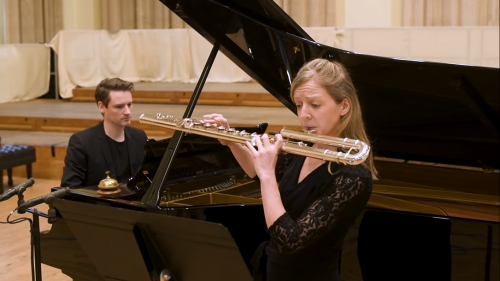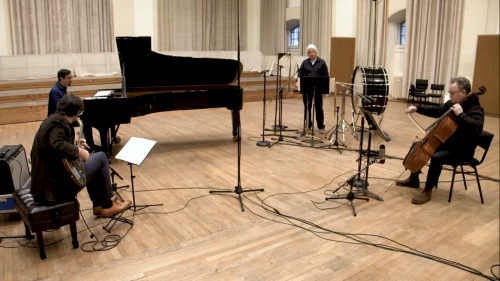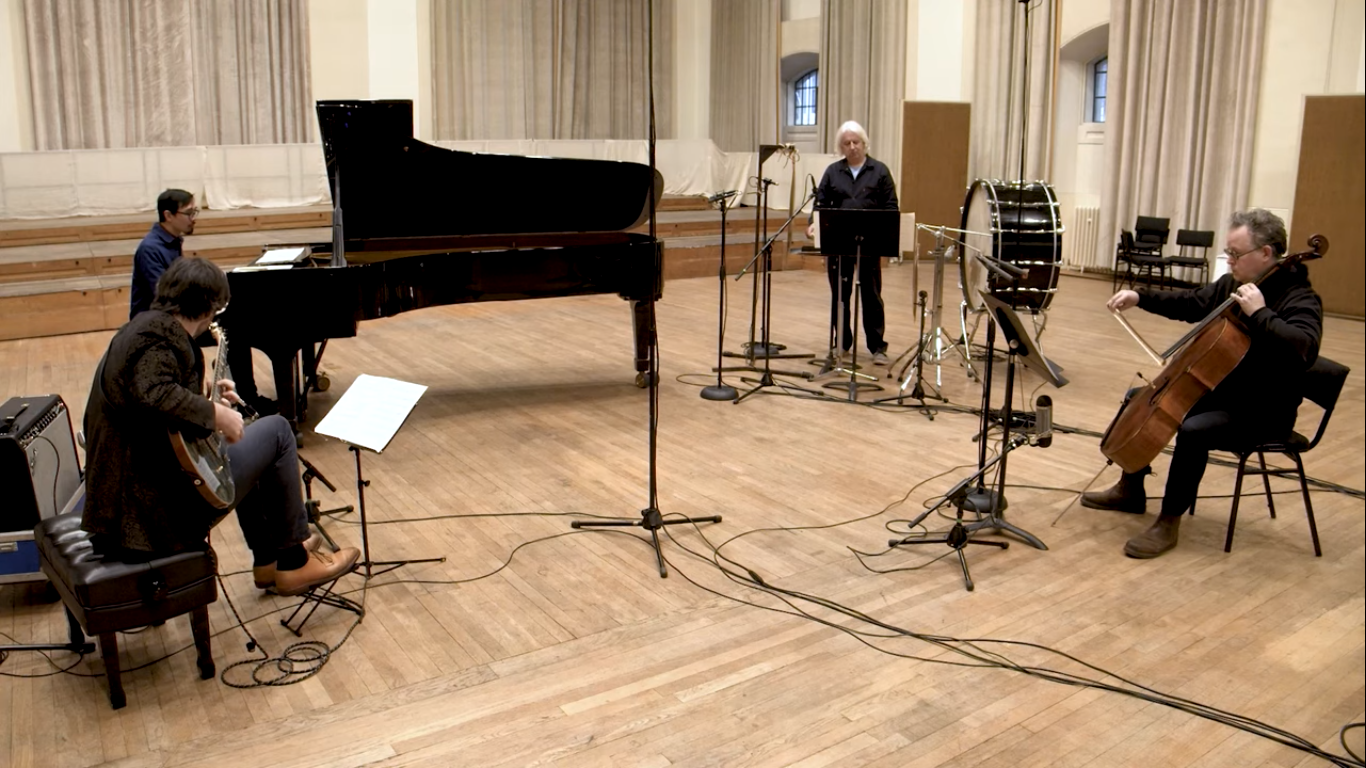 Ireland Cornelius Cardew, Laurence Crane – ‘Old Life was Rubbish’: Fiona Kelly (bass flute), Michael McHale (piano), Apartment House (Heather Roche [clarinet], Anton Lukoszevieze [cello], Sam Cave [electric guitar], Simon Limbrick [percussion], Kerry Yong [piano]). Streamed from Louth Contemporary Music Society website (click here), 17.4.2021. (RB)
Ireland Cornelius Cardew, Laurence Crane – ‘Old Life was Rubbish’: Fiona Kelly (bass flute), Michael McHale (piano), Apartment House (Heather Roche [clarinet], Anton Lukoszevieze [cello], Sam Cave [electric guitar], Simon Limbrick [percussion], Kerry Yong [piano]). Streamed from Louth Contemporary Music Society website (click here), 17.4.2021. (RB)

Cornelius Cardew – ‘The Croppy Boy’
Laurence Crane – ‘John White in Berlin’
Laurence Crane – ‘Old Life was Rubbish’
Laurence Crane – ‘Gli Anni Prog’
Laurence Crane – ‘Sparling’
Cornelius Cardew – ‘We Sing for the Future’
This concert formed part of a contemporary music festival which is run every year in Dundalk, County Louth in Ireland. The strap line for this year’s festival was ‘We Sing for the Future’ and it was also the title of the final work on this programme. Some of the world’s leading figures in contemporary music such as Arvo Pärt, Terry Riley and Philip Glass have been involved with the festival and it has attracted many leading international artists. Michael McHale introduced the two piano works by Cornelius Cardew which bookended the concert while Laurence Crane introduced his own works.
Cornelius Cardew was attracted to the modernist compositions of Karlheinz Stockhausen and John Cage at the beginning of his career and he began to forge a path as an experimental, modernist composer. However, he later rejected experimental music and explained the reasons why in his Piano Album of 1973. The two works on the programme fall into this later phase of the composer’s career and they use more traditional musical language. ‘The Croppy Boy’ is one of the Four Principles of Ireland which Cardew wrote in 1974 when ‘The Troubles’ in Northern Ireland were at their height. A croppy is the name given to a participant in Wolfe Tone’s rebellion of 1798 against English rule in Ireland. ‘The Croppy Boy’ is a ballad dating from that time which laments a volunteer who was executed. Michael McHale gave a highly cultivated performance of this short work. He captured the noble elegiac character of the piece while producing rich sonorities and beautifully layered textures. I had not heard the piece before and it reminded me of Brahms’s late intermezzos.
McHale’s performance of ‘We Sing for the Futur’e was the high point of the concert. The piece itself is based on a song for young people and it is a freewheeling fantasia which lasts for around 12 minutes. Cardew was a communist and the piece reflects his political preoccupations, in this case the struggle of youth in today’s world. (Interestingly Frederic Rzewski whose work is also inspired by political ideas has recorded the piece). McHale did a superb job navigating the virtuoso demands of the work while fusing together the amalgam of different styles running through it. I was particularly impressed with the clarity of his playing in one section of the piece which involved complicated Bachian counterpoint. The final section of the piece came across as a great cry of affirmation, perhaps underscoring the composer’s belief that the future belongs to young people. It is a superb piece and deserves to be heard in the concert hall much more frequently.

The four works by Laurence Crane were more modernist in character. ‘John White in Berlin’ was performed by the contemporary music ensemble Apartment House. Long sustained lines were maintained using e-bows on the piano and the group conjured up some interesting luminous sonorities. Michael McHale was joined by flautist Fiona Kelly for ‘Gli Anni Prog’ (which translates as ‘The Years Prog’). At the beginning of the piece the two performers appeared to be disconnected to each other. Kelly produced melodic fragments while McHale followed this up with chords on the piano. As the piece progresses the two performers tried to wrestle control from each other. There was a bell on the piano and at various point the performers rang the bell and said the word ‘Prog’. Both McHale and Kelly gave assured committed performances, although this piece did not entirely win me over and I found sections of it repetitive.
Overall, this was a great concert with all the performers giving strong committed performances. Cornelius Cardew’s piano works deserve to be known much more widely and bravo to Michael McHale for his sterling performance of these works.
Robert Beattie
